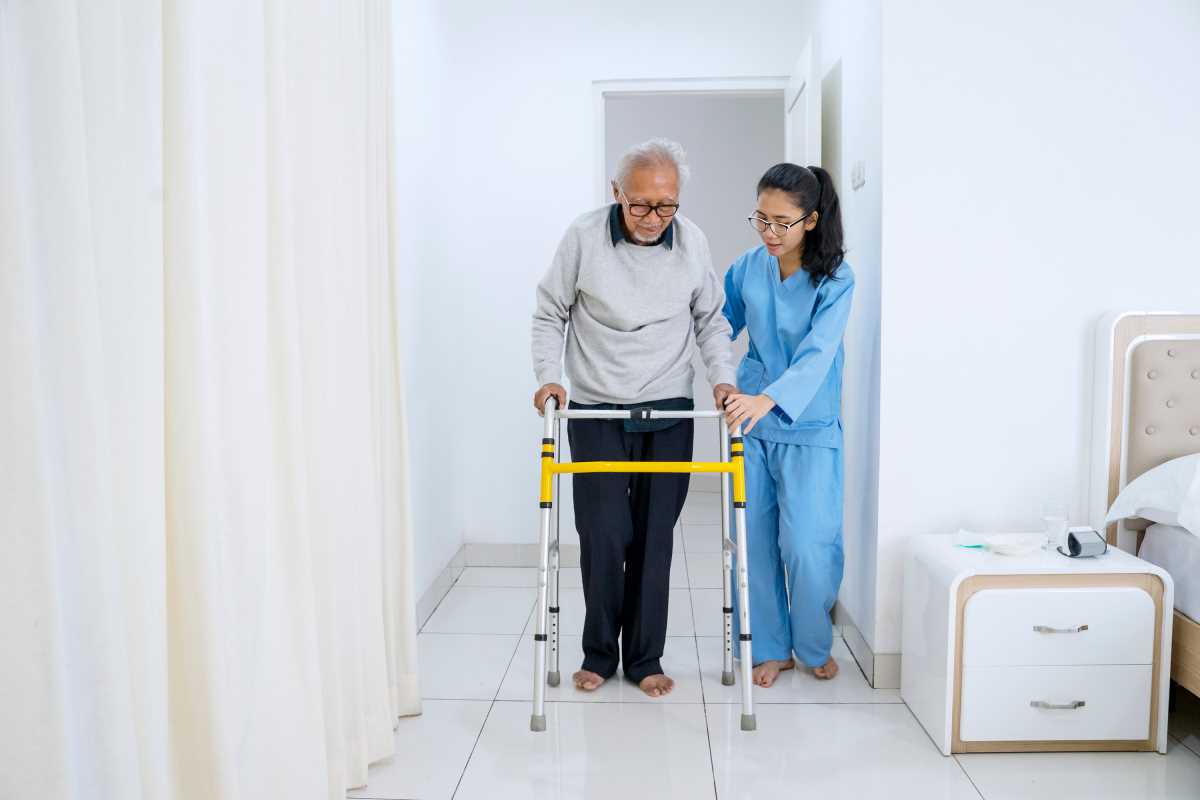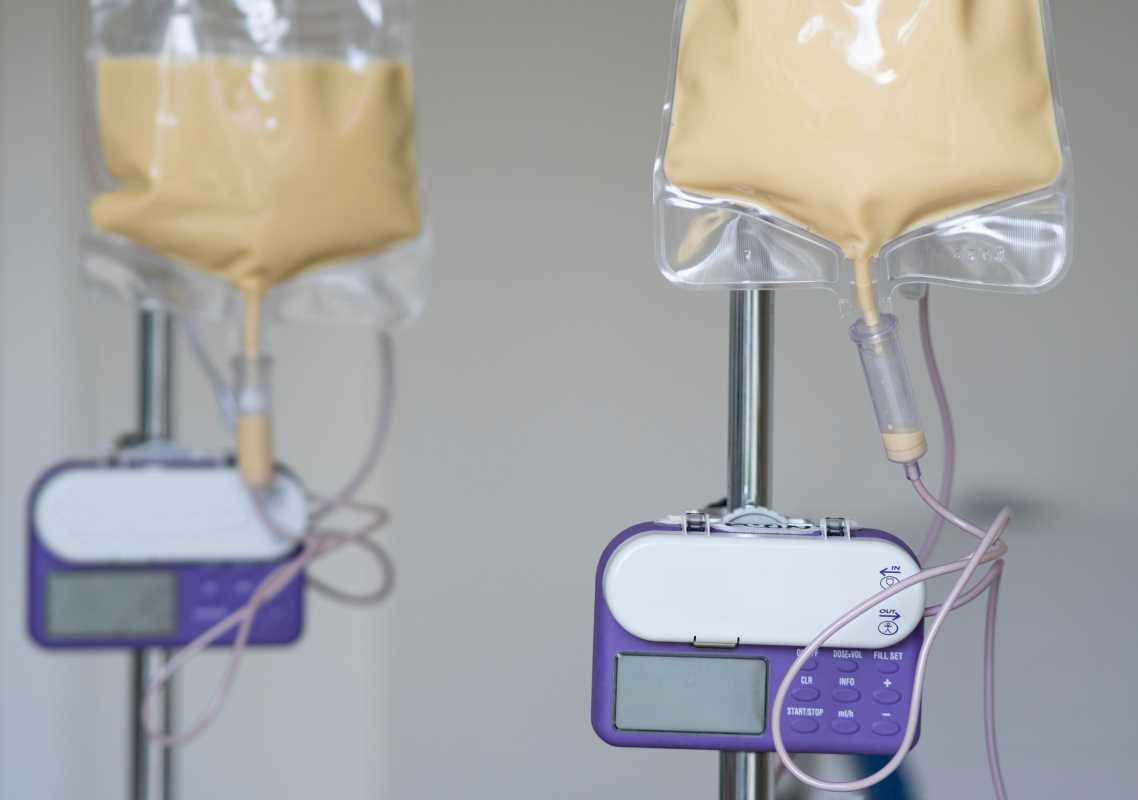Caring for someone you love after a stroke can feel like venturing into unknown territory. Suddenly, you’re thrown into a world of medical terms, lifestyle adjustments, and emotional challenges you may not have faced before. Supporting your elderly parent through stroke recovery can be overwhelming, but it’s also an opportunity to bond, support, and make a real difference in their quality of life. Recovery is a long process, different for everyone, but with the right tools and mindset, you can help your parent regain as much independence as possible.
This guide will give you a roadmap. We’ll cover what a stroke is, what recovery can look like, and how you can help—from practical tips for daily living to emotional support strategies that truly matter.
Understanding Strokes
To start, it’s important to understand what a stroke is and why it has such a big effect. A stroke happens when blood flow to the brain is interrupted or reduced due to a blockage or rupture in a blood vessel. This lack of blood flow damages brain cells because they’re not getting the oxygen and nutrients they need. Depending on where the stroke happens in the brain, it can affect speech, movement, memory, or even personality.
For your elderly parent, this could mean challenges like struggling to walk, needing assistance to speak clearly, or feeling frustrated when they can’t remember certain things. Strokes can range from mild to severe, and the recovery process will depend on which areas of the brain were affected and how quickly they got medical attention.
Here’s where you come in. Your role is to support their recovery by working with their medical team, setting realistic goals, and creating an environment that encourages gradual improvement.
Building a Strong Support System
Recovery from a stroke isn’t something your parent can tackle alone. The more people involved in their care, the smoother things will go. Family, friends, healthcare providers, therapists, and even community resources may all play a part.
- Medical team: This could include doctors, nurses, physical therapists, occupational therapists, and speech therapists. Each one has a specific role in helping your parent regain skills or adapt to new circumstances. Keep communication open with them, and don’t hesitate to ask questions.
- Family and friends: Your extended family or close friends may be able to share caregiving responsibilities. Even small tasks, like picking up groceries or driving your parent to appointments, can lighten your load.
- Community resources: Many areas have support groups or organizations that assist stroke survivors and their families. These groups can give you advice, emotional support, and information on financial or caregiving help.
Helping with Physical Recovery
Physical rehabilitation is key to helping your parent regain independence. Every stroke is different, but these are the most common rehab areas and how you can assist:
Mobility and Strength
If your parent has trouble walking or moving, physical therapy will become a big part of their routine. A physical therapist will guide exercises designed to rebuild strength, improve balance, and even re-train their brain to control affected limbs. You can encourage your parent by practicing their exercises with them at home or helping them stay consistent with therapy appointments.
Speech and Swallowing
Some strokes can affect the parts of the brain that control communication and swallowing. A speech therapist can help your parent relearn how to form words or adjust their diet if swallowing is an issue. You can make conversation fun and less frustrating by being patient, maintaining eye contact, and giving them time to speak.
Self-Care Tasks
Daily activities like bathing, getting dressed, or cooking can become difficult after a stroke. Occupational therapists specialize in helping stroke survivors adapt to these challenges. They might recommend tools or techniques that make tasks easier, such as grab bars in the bathroom or dressing aids. Ask for demonstrations and practice patience as your parent learns.
Emotional Support Is Just as Important
Recovering from a stroke isn’t just tough physically—it can be an emotional rollercoaster. Your parent may feel sadness, frustration, anxiety, or even guilt for needing help. They may also experience depression, which is common after a stroke.
Your role is to be their cheerleader, listener, and advocate. Here’s how you can offer emotional support:
Be Patient and Understanding
Recovery is a slow process, and it’s natural for your parent to feel discouraged at times. Remind them of the progress they’ve made, and avoid rushing or pushing them beyond their limits. Statements like, “I can see how hard you’re working” or “You’re doing better than last week” can have a big impact.
Encourage Socialization
Isolation can make recovery harder. Encourage your parent to spend time with friends, join a local stroke survivor group, or even try virtual chats if leaving the house is a challenge. Social interaction can boost their mood and remind them they’re not alone.
Take Care of Yourself, Too
Caring for a parent is demanding, so it’s important to look after your own well-being. You can’t pour from an empty cup, as the saying goes. Take breaks when you need to, ask for help if you feel overwhelmed, and consider joining caregiver support groups to connect with others who understand what you’re going through.
Making the Home Recovery-Friendly
A safe and comfortable home setup can make a world of difference. Here are some ways to adapt your parent’s living space:
- Prevent falls by removing loose area rugs, securing cords, and adding non-slip mats in the bathroom.
- Add helpful tools like grab bars, raised toilet seats, or a walker for mobility.
- Improve access by making often-used items more reachable or rearranging furniture for easier movement.
- Create a relaxing space where they can rest and feel at ease. Recovery takes a lot of energy, so downtime is important.
What to Expect as Recovery Progresses
Stroke recovery isn’t linear—it has ups, downs, and plateaus. It’s helpful to remember that every small step counts. At first, progress may feel slow, but with consistent effort, milestones can be reached.
Initially, much of the recovery work will focus on basic survival and stabilization. Over time, the focus will shift to regaining independence. Weeks or months into recovery, your parent might discover new abilities they never thought possible, or they may develop new ways to adapt to any lasting effects of the stroke.
Keep in mind that healing isn’t just physical; it’s also emotional and psychological. Celebrate wins, no matter how small, and stay patient during tough days.
 (Image via
(Image via





